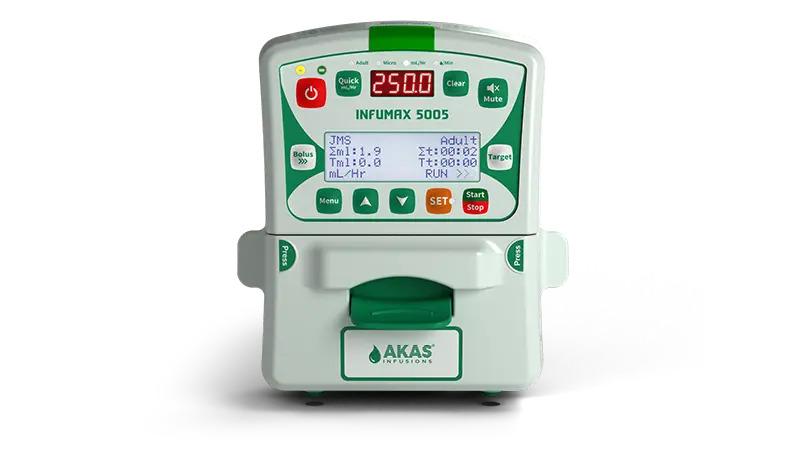-
Nieuws Feed
- EXPLORE
-
Pagina
-
Groepen
-
Events
-
Reels
-
Blogs
-
Offers
-
Jobs
-
Forums
-
Music Video
The Role of Infusion Pump Data in Improving Hospital Resource Allocation

Introduction
Hospitals today face the dual challenge of providing safe, high-quality care while managing limited resources. Every decision on staffing, equipment usage, and patient management directly impacts outcomes. In this context, data from medical devices plays an increasingly vital role in guiding administrators and clinical teams. Among these technologies, the Infusion Pump has emerged as a powerful source of actionable insights. Beyond delivering medications with precision, these systems capture valuable data that helps hospitals allocate resources more effectively, ensuring care is both efficient and compassionate.
How Infusion Pump Data Transforms Hospital Efficiency
The integration of smart medical devices into hospital networks is changing how care is delivered. The Infusion Pump now functions not only as a drug delivery device but also as a data generator that strengthens operational planning. Hospitals can monitor usage patterns, track medication flows, and predict needs with greater accuracy. This shift allows institutions to optimise staff assignments, reduce waste, and make informed decisions about their equipment investments.
By harnessing the data generated through infusion systems, hospitals benefit in several ways:
-
Medication Accuracy: Data helps confirm correct dosages, reducing the risk of errors.
-
Resource Planning: Usage trends show where infusion devices are most needed.
-
Staffing Insights: Information supports balanced nurse-to-patient ratios.
-
Inventory Control: Hospitals can forecast medication and device requirements.
-
Compliance Monitoring: Automated records simplify regulatory reporting.
Enhancing Patient Care with Smarter Allocation
One of the greatest advantages of using Infusion Pump data lies in patient-centred care. In busy hospital environments, knowing where devices are in use and which patients require intensive monitoring enables faster response times. For instance, when pumps highlight trends of higher demand in intensive care units, administrators can redirect staff and equipment accordingly. This ensures that critically ill patients receive priority without compromising care in other departments.
At the same time, infusion data reveals inefficiencies that might otherwise go unnoticed. If certain pumps remain underutilised in one ward while others are in constant rotation, resource managers can make timely adjustments. This real-time flexibility improves both patient comfort and operational performance.
Supporting Clinical Teams with Data-Driven Decisions
Healthcare professionals often juggle multiple responsibilities, and the availability of precise information can reduce their burden. With Infusion Pump data, nurses and doctors have access to accurate logs of infusion histories, alarm reports, and flow rates. These insights allow teams to spend less time on manual documentation and more time on direct patient interaction.
Additionally, data from infusion systems aids biomedical engineers in scheduling maintenance before issues occur. Predictive alerts prevent downtime and ensure devices remain safe for patient use. This proactive approach not only saves costs but also supports uninterrupted care delivery.
Key Areas Where Infusion Pump Data Optimises Resources
Hospitals can take full advantage of infusion analytics when they focus on specific operational areas. These include:
-
Staff Allocation: Data reveals patient needs, allowing hospitals to position nurses where they are most required.
-
Medication Management: Usage records reduce wastage by improving stock control and timely reordering.
-
Equipment Deployment: Real-time location tracking ensures pumps are distributed fairly across wards.
-
Financial Planning: Analysis of utilisation patterns helps identify underused assets, guiding better investment decisions.
-
Quality Assurance: Automatically collected infusion records strengthen hospital audits and accreditation processes.
Building a Data-Driven Future for Hospitals
The shift towards data-driven healthcare reflects a broader transformation in hospital management. By viewing the Infusion Pump not only as a device but also as a digital tool, hospitals are preparing for a future where decisions rely on evidence rather than estimates. This enhances transparency, supports accountability, and improves trust among patients and families.
Administrators and clinical leaders can collaborate more effectively when supported by reliable device data. The insights foster communication between departments, aligning resources with patient care goals. In the long run, this ensures sustainable hospital growth and better patient outcomes.
Conclusion
The role of the Infusion Pump extends beyond accurate medication delivery into the realm of operational intelligence. By leveraging the data it generates, hospitals can improve resource allocation, enhance patient care, and ensure cost-effective practices. Reliable device data provides administrators with a foundation for better planning, clinicians with tools for safer treatment, and patients with improved outcomes.
Akas Infusion manufactures world-class drug delivery devices, including advanced volumetric pumps, designed to meet these evolving needs. With innovative solutions and a commitment to precision, they support hospitals and healthcare institutions in building efficient, patient-centred systems of care.
- AI
- Vitamins
- Health
- Admin/office jobs
- News
- Art
- Causes
- Crafts
- Dance
- Drinks
- Film
- Fitness
- Food
- Spellen
- Gardening
- Health
- Home
- Literature
- Music
- Networking
- Other
- Party
- Religion
- Shopping
- Sports
- Theater
- Wellness


